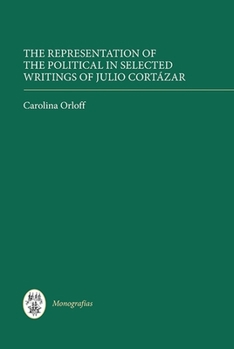The Representation of the Political in Selected Writings of Julio Cortázar
(Part of the Monografias A Series)
OrIoff shows that Cort zar did not become a political writer as a result of the Cuban Revolution, as is often claimed, but rather that the representation of the political was present in Cort zar's very first writings. The book analyses the evolution of the representation of distinct political elements throughout Cort zar's writings, mainly with reference to the novels and the so-called collage books, which have so far received only limited critical attention. The author also alludes to some short stories and refers to many of Cort zar's non-literary texts. Through this chosen corpus, the book follows a thematic thread, showing that politics was present in Cort zar's fiction from his very first writings, and not - as he himself tended to claim - only following his conversion to socialism. The study aims to show that contrary to what many critics have argued, this political conversion did not divide the writer into an irreconcilable before and after - the apolitical versus the political - but rather it simply shifted the emphasis of the representation of the political that already existed in Cort zar's writings. Carolina Orloff is an independent scholar working on research projects in the UK and in Argentina.
Format:Hardcover
Language:English
ISBN:1855662620
ISBN13:9781855662629
Release Date:August 2013
Publisher:Tamesis Books
Length:236 Pages
Weight:1.10 lbs.
Dimensions:0.8" x 6.3" x 9.4"
Customer Reviews
0 rating





